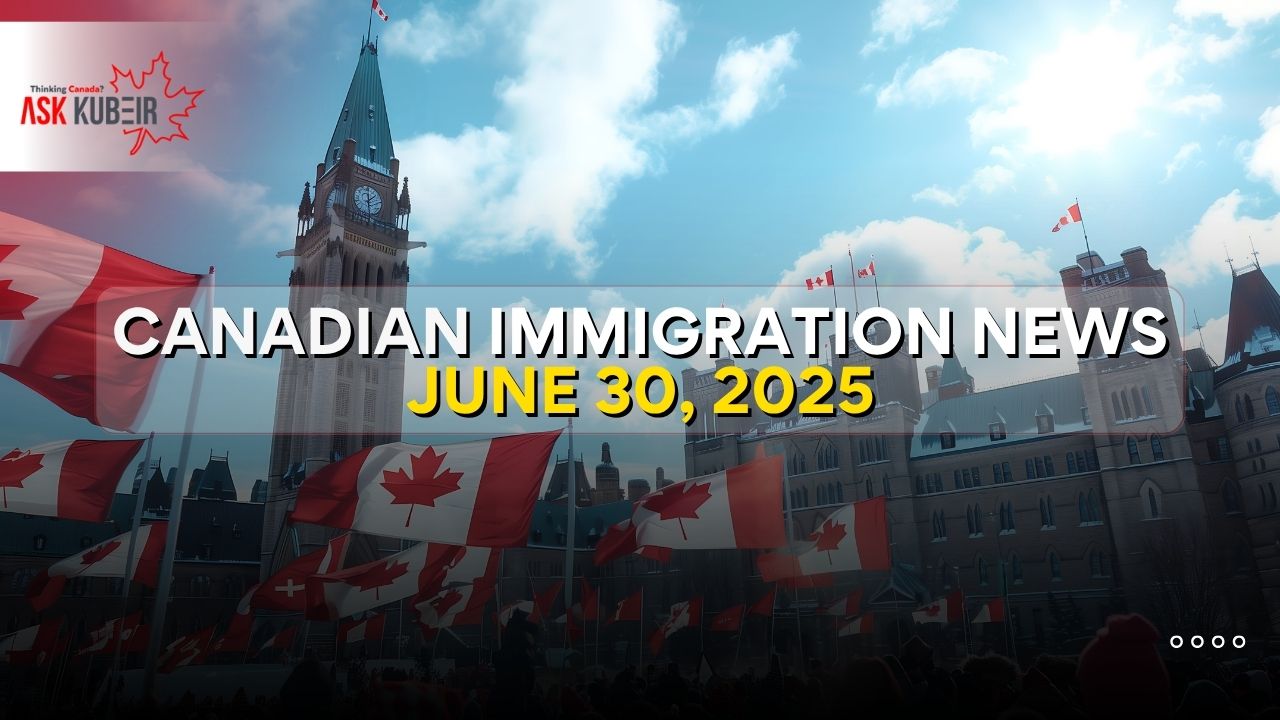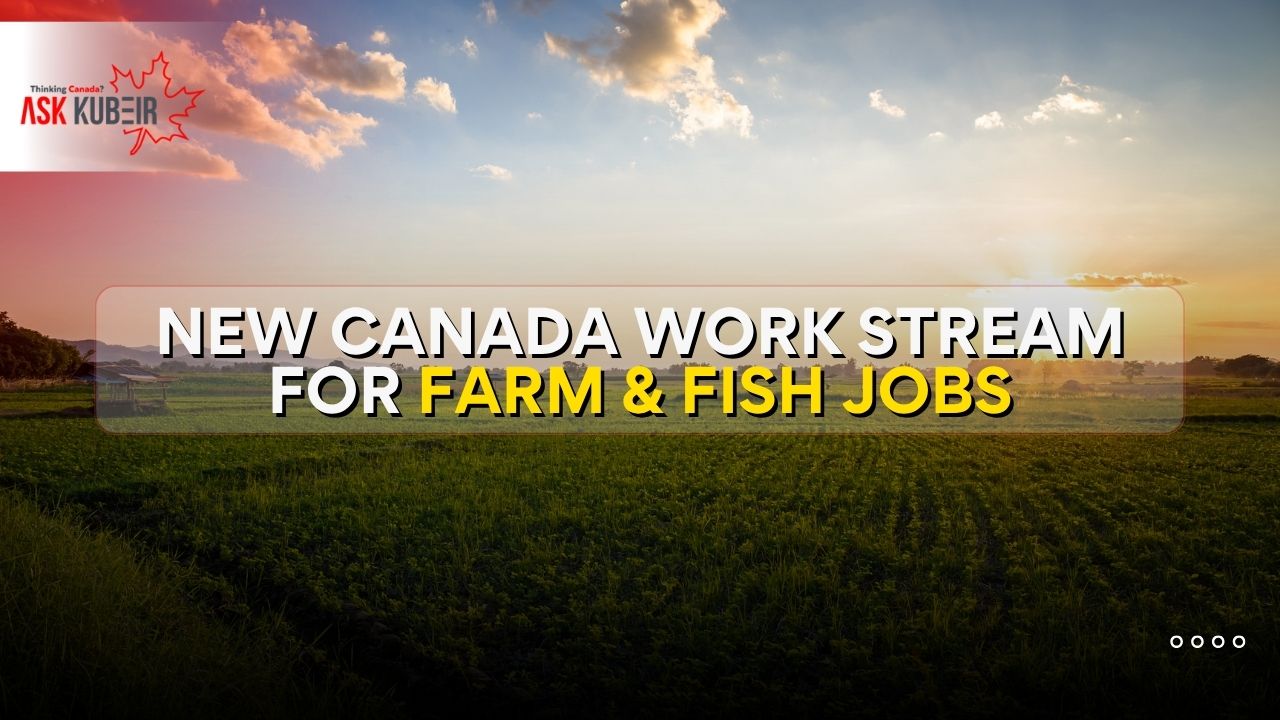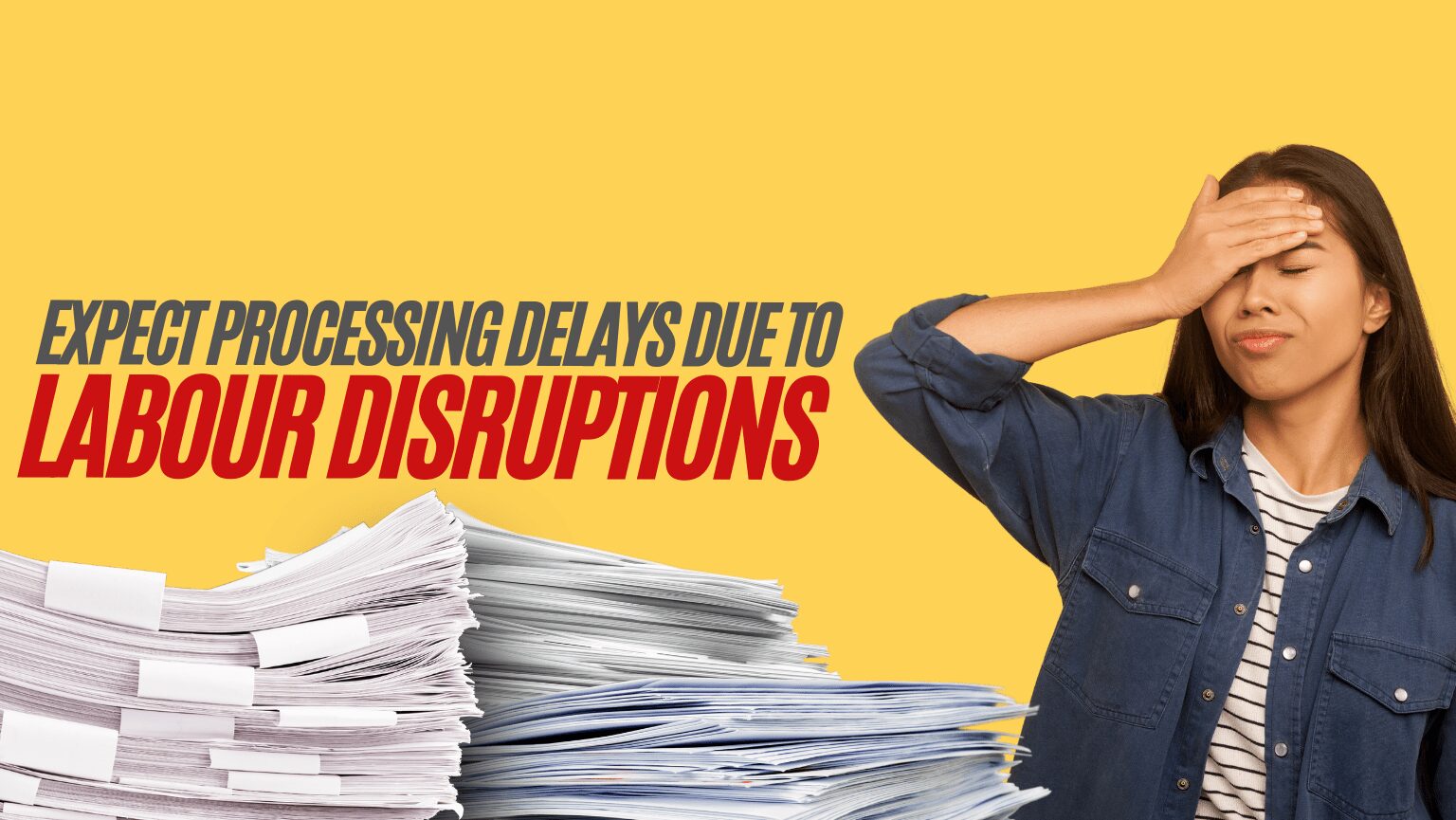
Related Post






Stay Updated!

Understanding Labour Disruptions in Canada’s Immigration System
Labour disruptions can occur when the employees of the Canada Border Services Agency (CBSA), Immigration, Refugees and Citizenship Canada (IRCC), the Immigration and Refugee Board of Canada (IRB), and other federal government services are unable to perform their duties due to a strike, lockout, or other labour dispute. These disruptions can cause delays in the processing of immigration applications, including those for permanent residency, work permits, and visitor visas.
The IRCC has indicated that “possible” labour disruptions may affect their operations in mid-April. During a labour disruption, some services may be temporarily unavailable or delayed. For example, the CBSA may experience delays in processing border clearance, while the IRCC may experience delays in processing immigration applications.
Suppose you are in Canada on a temporary status and your work permit expires during a labour disruption. In that case, you may not be able to renew it until the situation is resolved. However, if your permit expires soon, you can apply for an extension in advance to avoid being affected by a potential labour disruption.
If you have already applied for permanent residency or citizenship, a labour disruption may cause a delay in the processing of your application. However, the IRCC will continue to accept and process applications during a labour disruption, albeit slower.
It is important to stay informed about any potential labour disruptions and to keep your immigration documents up-to-date. You can do this by following news and updates from the IRCC, CBSA, and IRB.
In conclusion, labour disruptions can cause delays in the processing of immigration applications in Canada. However, by staying informed and keeping your documents up-to-date, you can minimize the impact of these disruptions on your immigration journey.
